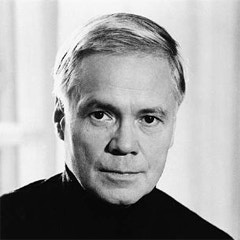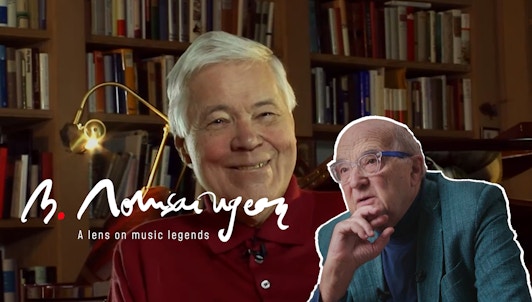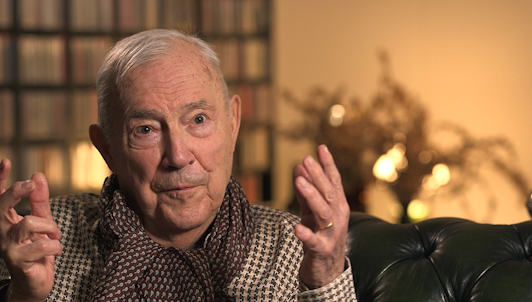Dietrich Fischer-Dieskau's musical interests and talent were evident early in his life, but he was no child prodigy. He learned to play the piano from his mother and continued to study piano throughout his school years.
Dietrich Fischer-Dieskau started singing as a child and began formal voice lessons at sixteen with Professor Georg A. Walter. When he was drafted into the Wehrmacht in 1943, Fischer-Dieskau had just completed his secondary school studies and one semester at the Berlin Conservatory. In 1947, he studied briefly with Professor Hermann Weissenborn at the Berlin Conservatory before beginning his professional career. Fischer-Dieskau once said: 'I passed my final exam in the concert hall'.
Dietrich Fischer-Dieskau's professional career as a singer began in 1947 in Badenweiler when he sang in Brahms' German Requiem without any rehearsal - he was a last-minute substitute for a singer who was indisposed. He gave his first Lieder recital in Leipzig in the fall of 1947 and followed it soon afterward with a highly successful first concert at Berlin's Titania-Palast.
In the fall of 1948 Dietrich Fischer-Dieskau was engaged as principal lyric baritone at the Municipal Opera (Städtische Oper) in Berlin, making his debut as Posa in Verdi's Don Carlos under Ferenc Fricsay. Subsequently, Fischer-Dieskau made guest appearances at the opera houses in Vienna and Munich. After 1949 he added concert tours in England, Holland, Switzerland, France and Italy. He made regular opera appearances in Bayreuth between 1954 and 1961 and in Salzburg from 1956 until the early 1970's (he made his Salzburg concert debut in 1951 with Gustav Mahler's Songs of a Wayfarer under Wilhelm Furtwängler). He garnered great critical acclaim for his detailed, insightful and imaginative interpretations and for the almost infinite variety of colors and shadings in his voice.
As an opera singer, Dietrich Fischer-Dieskau performed mainly at the Deutsche Oper Berlin and at the Bavarian State Opera in Munich. He also made guest appearances at the Vienna State Opera, at Covent Garden in London, at the Hamburg State Opera, at the great opera festivals in Bayreuth and Salzburg, in Japan and at the King's Theater in Edinburgh during the Edinburgh Festival. His first concert tour in the United States took place in 1955, and he gave his first lieder recital at New York City's Carnegie Hall in 1964.
Dietrich Fischer-Dieskau's commitment to contemporary music led to his participation in the first performances of works by many composers, including Benjamin Britten, Samuel Barber, Hans Werner Henze, Ernst Krenek, Witold Lutoslawski, Siegfried Matthus, Winfried Zillig, Gottfried von Einem and Aribert Reimann. As 'the world's greatest Lieder singer' (Time magazine), he regularly sold out concert halls all over the world until his retirement at the end of 1992. The precisely articulated accuracy of his performances, in which text and music were presented as equal partners, established standards that endure today. The current widespread interest in German Romantic art song is mainly due to his efforts. Perhaps most admired as a singer of Schubert lieder, Fischer-Dieskau had, according to critic Joachim Kaiser, only one really serious competitor - himself, as over the decades he set new standards, explored new territories and expressed unanticipated feelings and emotions.
Dietrich Fischer-Dieskau ended his more than 45 years of concert activity at the beginning of 1993. He made his unannounced farewell to public performance with his participation in a gala concert at the Bavarian State Opera in Munich on December 31, 1992. Since that time he has kept himself fully occupied as a teacher, conductor, reciter and author.


